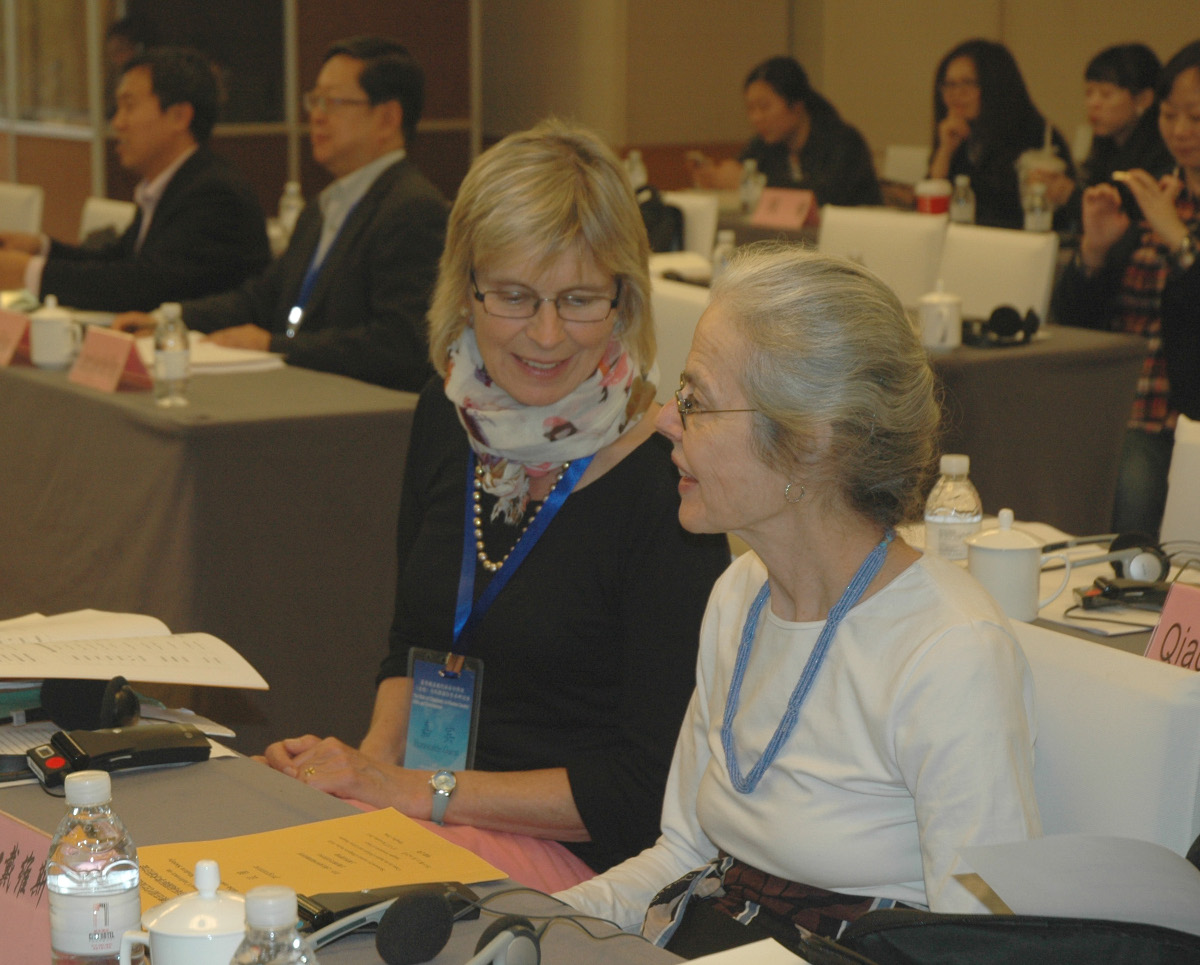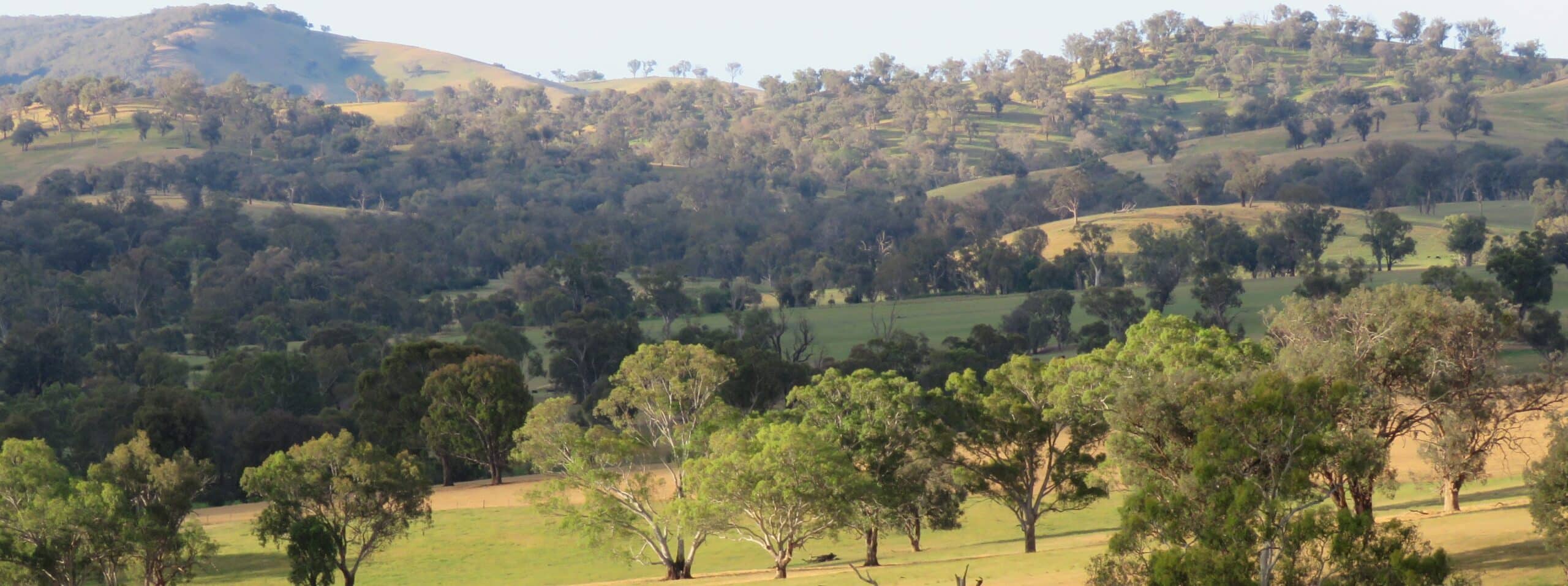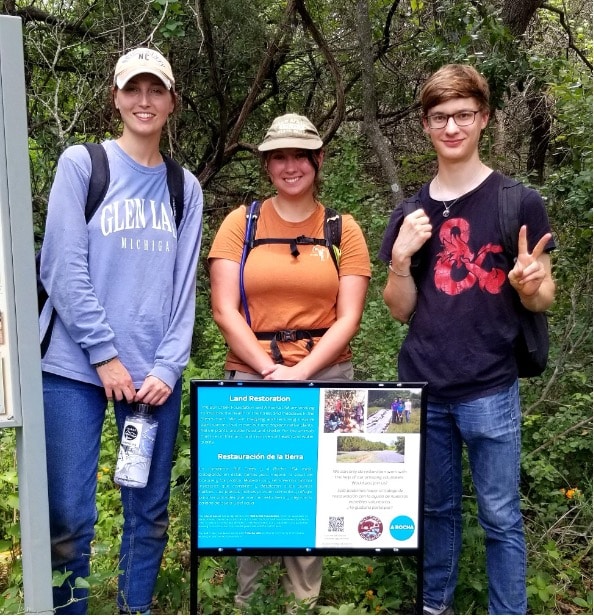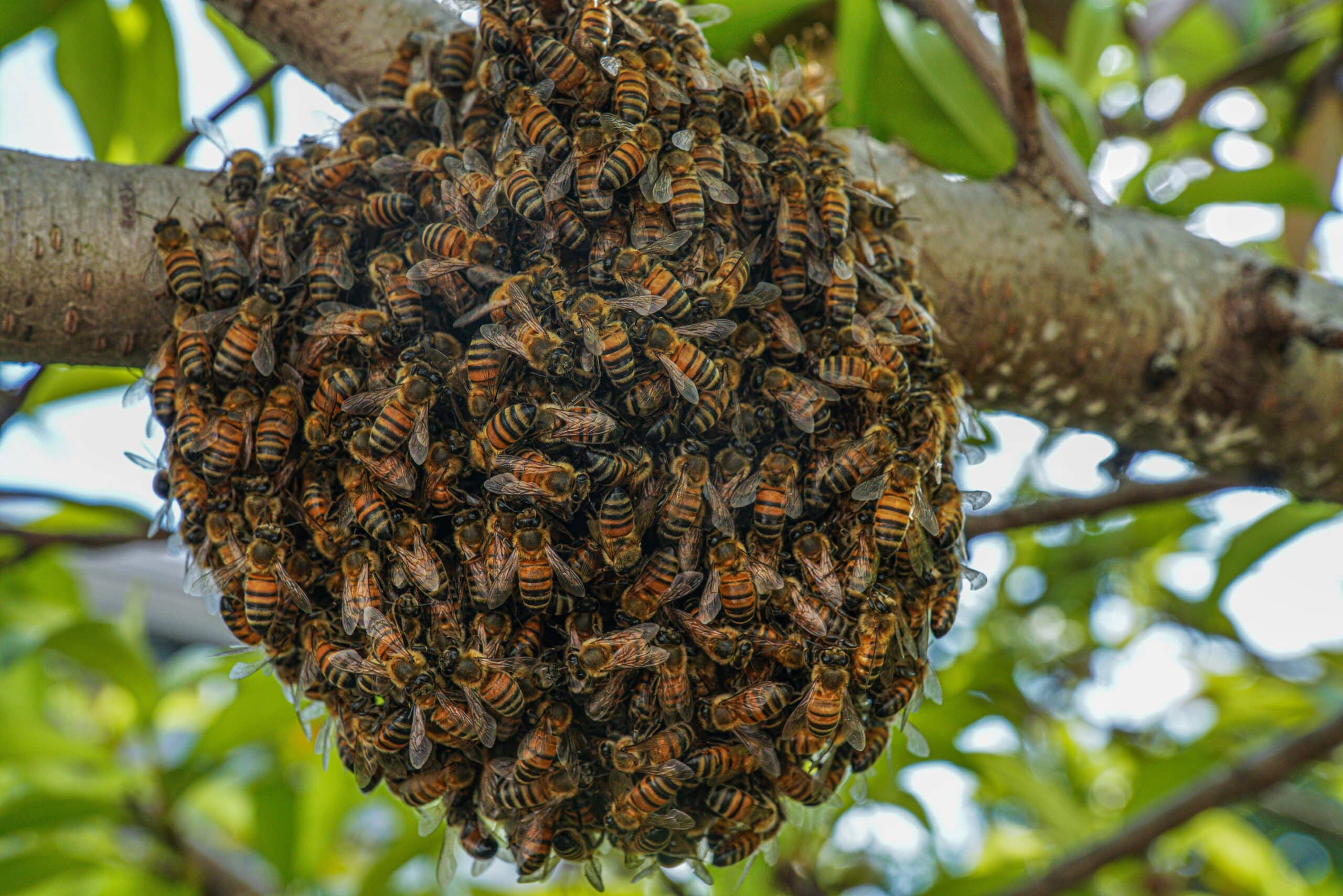Loving where we are
I hope to begin a discussion about how we talk about… for now let’s call it ‘caring for creation’.
Miranda and I have been greatly blessed by reading Ellen Davis’ wonderful commentary Proverbs, Ecclesiastes and the Song of Solomon. So it was a great privilege to speak alongside her in Shanghai, in November, at the Bible and Environment seminar hosted by the Academy of Social Sciences. We took the opportunity of many conversations over meals, and on buses and trains, to ask her to apply her deeply biblical mind to the question of finding good language that would do justice to the work of A Rocha and all those who care for creation, whether at home, in business, or in farming, and in all our relationships with the good material world of the Lord’s making.
‘Stewardship’ isn’t a biblical word, and although ‘creation care’ is now generally accepted, like all terms, it has its limitations. We will always need a range of phrases and words anyway, as no one description will always work. That is certainly one reason why Jesus taught in ‘many parables’ about the Kingdom of God.

Miranda Harris and Ellen Davis at the Shanghai Bible and Environment Seminar
During the seminar, Ellen suggested that people in creation care are given a dance that is choreographed by the Creator, but that image could seem a bit aesthetic and ethereal for some of the business people I work with! So overnight she wrote us some notes, and then as we waited for a train in Nanjing station we walked around and talked some more. The station is larger than any airport terminal I know so there is plenty of room for a quiet walk!
At the end of our conversation, the word that best seemed to describe the very nature of A Rocha’s mission was gardening. You may remember that Margaret Atwood tweeted her six hundred thousand followers that she had found “God’s gardeners” when she met Markku and Leah Kostamo and first encountered A Rocha Canada.
The picture of us gardening reminds us that God is the one giving the growth, and not us. Gardening, even in a groaning creation, is good hard work, restful for the soul and body. And it is work in which we see both frustration and fruit. Even so, while we are gardening the earth (and apparently human ‘gardening’ over thousands of years has contributed to the remarkable biodiversity of Brazil’s rainforests) we cooperate with our loving Creator God who alone gives all the conditions under which we can ‘produce’ anything.
Whatever we call our work − gardening, earth-keeping, nature conservation − we need to pray that we will be faithful and grateful in blessing creation and not be fretful or restless in our creatureliness.
Could we start a debate about how we can best describe our task and be intentional about our language?
Please let me know if you have some new descriptions to offer. Some of us work in English, but in other languages, and not least Chinese, the emerging movement to care for creation needs to find new language. We require a wide and rich vocabulary to sustain and inspire us.
I quite like ‘Love where you are’ as a call to action, but it may have been taken already!
We are happy for our blogs to be used by third parties on condition that the author is cited and A Rocha International, arocha.org, is credited as the original source. We would be grateful if you could let us know if you have used our material, by emailing [email protected].




I was so excited to see the title of this article. Will dream up metaphors. Hope to hear more too. 🙂
Hello Sofina – thanks for the encouragement. I was of course amused that having made myself a hostage to fortune by saying I wanted to start a debate this particular post has been met by a deafening silence! So I look forward a lot to hearing your first suggestion…
Hello Peter
I haven’t got anything definite, but I’ve just read Margaret Atwood’s book. No comment about the Gardeners being A Rocha, except yes, we’re all pretty flawed!
I’m musing on the phrase ‘the sanctity of our calling’ at the moment….
I’m sure there’s a sermon in that!
Hello Sarah – good to hear from you and I stand in admiration of the way you have always loved where you are – and so those places now look quite different! It is practical and hands on conservation work done for the love of God, such as you have always practiced, that helps us understand just how much the Lord cares about not only people but places. And it is a holy calling to care for creation – which is what makes it such hard going at times. Always glad of fuel for the fire where sermons are concerned so keep thinking about this question of how we can talk well about what we do!
I think of what we do as restoring the relationships between all things; integral ecology, one might perhaps call it? Stemming out of the ‘Master’s plan for the universe’ summarized in Ephesians 1.9–10. I try to play a part in moving every thing closer to its place of most flourishing for God’s glory, including the human ecology of us in relation to each other and the rest of the natural world.
Ellen’s ‘dance’ metaphor is very apt I think – if we can imagine the universe as a network of nodes all interconnected, as we move one node, however slightly, that causes every other node to move. A cosmic dance.
This relationship restoration work takes many forms, including sometimes restoring past natural boundaries that allowed different natural and human systems to flourish in separate parts of the world. Portugal, with its mild weather, has proven good ground for invasive plants from North and South America, Southern Africa, West and East Asia, and Australia. I dream of a distant future when all those invasives will be gone. As for human systems, an appreciation of local cultures is necessary to counter the downsides of globalization.
Sorry if I took your broad question and made it even broader; I tend to do that. All my thoughts seem to be interconnected too…
Bom dia Júlio! Your comments are always better for the breadth you bring so keep them coming. I think your vision is directly in line with biblical thinking and deeply practical too. And you know very well just how arduous it can be to work out with your own community and place. My concern is both for how we talk about it and the language – and in particular that we both find a snappy phrase or word – because I am not sure we have yet – and also that how we talk reflects what we believe.I am interested that as the speaker of a Latin language you evoke the word “integral”. That has passed from Latin Christian thinkers to have currency in another area so “integral mission”. But it really doesn’t resonate in English the same way as Spanish or Portuguese – so in my humble opinion Anglophones need to come up with something better there too!
Oh, you’re right… my own language tricked me there: I slipped a Portuguese term into an English sentence! It shows how language can be as elusive as it is important.
My dictionary does give this meaning for integral: “having or containing all parts that are necessary to be complete: the first integral recording of the ten Mahler symphonies.” But it’s not really the first sense of the word, and it feels a bit awkward to say it like that.
So I should have said – full, complete or comprehensive ecology. The whole thing, with nothing left out.
As for the Portuguese term, once this article is translated into Portuguese I’ll leave a comment there!
[…] Words have been on my mind recently after discussions in A Rocha (the organisation I work with) about finding the right language to describe the work that we do (Click here to see the discussion). […]
Thank you for raising such an interesting topic to think about, Peter!
I’m thinking about how we need to learn the song of creation, so it can continue on to declare the glory of our Lord.
I expand my thoughts on this in my blog (link below), but struggling to think of something “snappy”!
https://asinglethreadline.wordpress.com/2016/02/12/songs-and-words-and-what-i-want-to-do-with-my-life/
Salut Aline! Thank you for giving us all an extended blog post on beauty and language. Jonathan Edwards is only one theologian who really raises the significance of beauty in our godly imaginations and so calls us to do better justice to both caring for creation and expressing what we feel about it. I love the question and answer you give at the end “What do all these abstract thoughts look like practically? They look like longing for God’s healing hand to touch everything that is broken.” Wanting to know what the practical outcome is resonates strongly with all of us in A Rocha and caring about how it looks and sounds does too. As to being snappy, how about this (very!) recent description of A Rocha?
‘We are a Christian organization engaging communities in nature conservation.” I fear you might say it satisfies the snappy but isn’t exactly très beau…Ah well. We will keep working on it.
I live in Taiwan and I love the place I live. My husband and I would like to do something for the land that God gave us. Please reach me and give us some advice how we can start with. That would be grateful.
It is very good to hear from you and we are so delighted to hear of more and more people in your part of the world who are beginning to love the place they live out of love for the Lord who made it. My colleague Samuel will be in touch with you as he and Dave Bookless met many others from Taiwan who share your convictions and hopes when they were there in November for the launch of the Chinese translation of Planetwise. See:
https://arocha.org/en/news/planetwise-published-in-chinese/
So I hope you can find that vocation you seek for the land God has entrusted to your care.
Thank you very much for your reply,Peter. We are looking forward Samuel get back to us.
I was requested to leave my opinion here (in response to an other article). I can’t judge the specific word “steward”, because I know too little how it is used in English. But it is the translation of the dutch word “rentmeester”. The “rentmeester” is someone who manages the property of his boss. His job is to generate interest/money for his boss. In this meaning the steward/rentmeester is used in the Bible (Matt 20; Luk 12, 16; the same thought in the parable of the talents, Matt 25). So the steward is a biblical term but never mentioned in relation to creation.
Another objection against the steward, is that he is a servant. Although a christian lives as a servant, like Christ, we are no servants but children in relation to God. In the image of the heavenly King, we are also kings. Man was made to rule over creation. In the parable of the lost son, the father said: My son, you are always with me, and everything I have is yours. The hired hand in John 10 is not a good shepherd.
Christ set an example of being a servant king. In Ephesians 5 husbands are summoned to love their wives as their own bodies. I think in this direction should also be our compassion with creation. 1 Corinthians 12: the parts that we think are less honorable we treat with special honor – nature can be hostile or hindering our ambitions, but even that part of creation needs our care.
So I opt for the servant king as description for our relationship with creation, (but I ‘m were of the antropocentric way the word “king” was used in the past).
To be clear, my full name is Peter Vos, to distinct from Peter Harris
Hello Peter – good to hear from a Dutch namesake! Thank you for your thoughtful contribution. It is particularly helpful to have ideas from outside the anglophone context although as with so many Dutch friends, your English puts many of us native speakers to shame. I am glad that the resonances of steward “work” for you in various ways. To be clear, I said that “stewardship” wasn’t a biblical term – steward of course is. RJ Berry brings together many perspectives, favourable and otherwise, in his edited essays called Environmental Stewardship and Richard Bauckham in The Bible and Ecology also raises many other questions about the concept. I don’t believe the idea that it places us in the role of servant is one of them. In fact the Hebrew word in Genesis 2:15 עבד (abad) has one of its root ideas as “to serve” the garden, while most English translations go for words like work or tend. Our “kingly” rule over creation is certainly only in relationship to the ultimate King of creation, the Triune God, and in so far as that understanding encourages us to take more responsibility, both for whatever elements of creation come under our care, and towards God for how we use his creation, it has to be a helpful idea. So thank you for highlighting that, and indeed for joining this discussion.
Hi Peter,
As usual, I’m both inspired and challenged by your thoughts and your questions. I too have wrestled with how to make our language more intentional and precise. While the gardening metaphor is very good (I use it often), it does have its limits. Particularly for indigenous people, I could see it coming across as being biased towards development, which has proven to be . Also, I always try to emphasize that while we are called to care for creation, we are also part of it.
I would encourage you (and A Rocha in general) to engage with indigenous leaders in this conversation– they have a lot to add to the discussion. In particular, Randy Woodley talks about how humans are part of the “community of creation”, which I love.
Shalom,
Katie Jewett
Fredericton, New Brunswick, Canada
Hello Katie, thanks so much for taking time to comment, and so helpfully. The need to talk in ways that does justice to all the cultures and languages in the places that A Rocha works gives us constant, and we hope creative, challenges! Your point about indigenous cultures is well taken – it is far too easy to listen really badly to the often quieter voices. But even that word “indigenous” has caused us some heart-searching. As you see above, we need to recognise that it does seem that seemingly “pristine” environments have in fact been “gardened” by their first inhabitants over many centuries. But the term “indigenous” can be complicated in different ways. For example, in cities where there are many recent arrivals from other parts of the world, it can be encouraging to different communities that plants from elsewhere – so called “exotics” – can flourish. Some have challenged us to think that too rigid adherence to ideas of planting only “indigenous” species in that social context can carry an unintended and unfortunate connotation…It’s complicated! But to go back to the main question – does gardening work as a metaphor? I am already finding from the responses on this blog, and in conversations, that it does for some, but for others it carries quite negative connotations. And I never knew that! So the discussion is proving really helpful and thank you for your part in it.
Peter, I am thinking of your comments about looking for the ultimate metaphor which best describes the management, care and nurture of creation which God the Creator calls us to share in as he “sustains all things by his powerful word”. As the Guardian review of the ‘Painting the Modern Garden’ exhibition described it, gardening is indeed “a moral gesture.” Or should we say “a faith gesture”. http://www.theguardian.com/artanddesign/2016/jan/15/flower-power-gardens-bloom-royal-academy
Hello Betty it is great to know that such a faithful gardener as you is following this discussion! I know your father’s African gardening was somewhat of an inspiration and that he saw it as holy work too. So thanks for the idea of a “faith gesture”. I found that interesting as sometimes we know our work won’t make much practical difference. But as a gesture, it does justice to what we believe much as the “moral gesture” that the article you reference talks about is “an attempt to bring order and peace to a chaotic and disrupted world”. Perhaps our tag line “Conservation and Hope” could be “Conservation and Faith”!